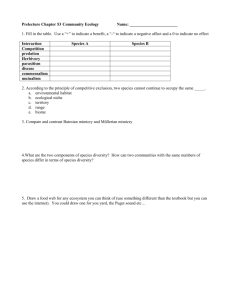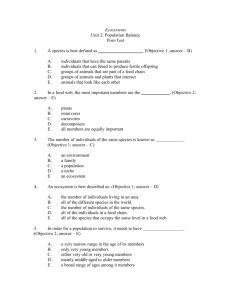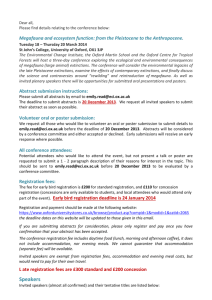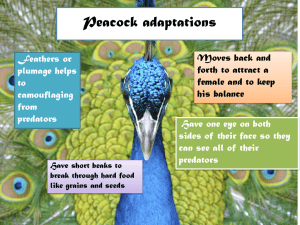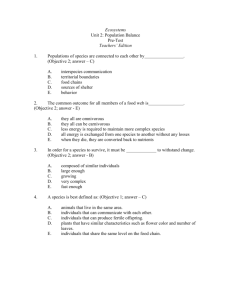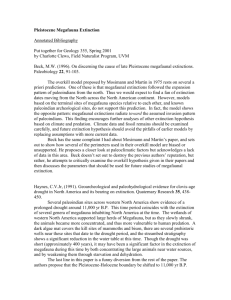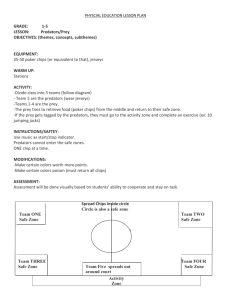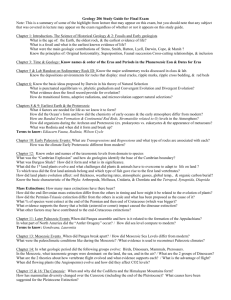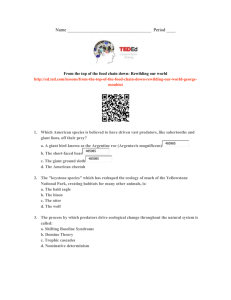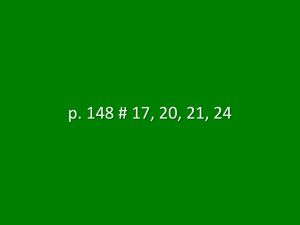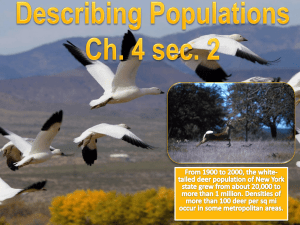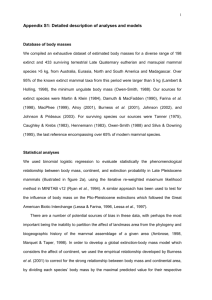Humans and the North American Pleistocene
advertisement
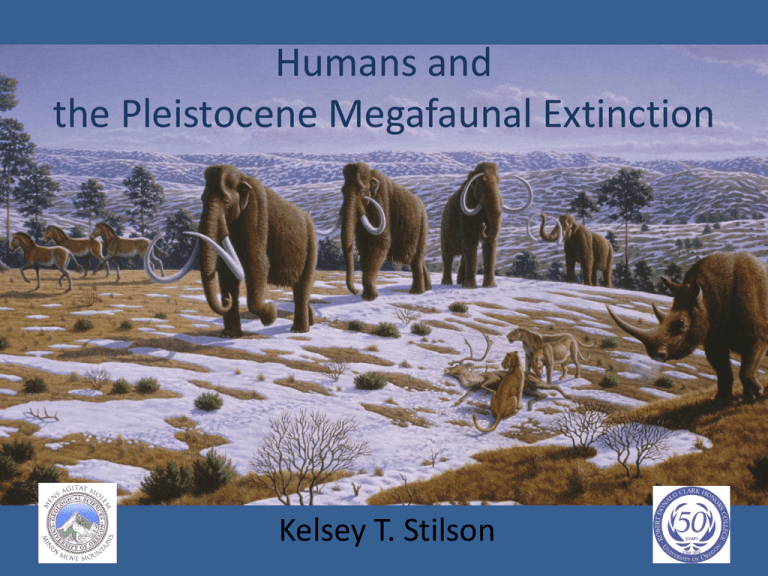
Humans and the Pleistocene Megafaunal Extinction Kelsey T. Stilson Cultural and Climate Revolution • Migrations change both humans and the ecosystem. Humans Ecosystem Climate Shared Space Novel System Stepped Global Extinction Events Barnosky, AD; Koch, PL; Feranec, RS; Wing, SL; Shabel, AB. Assessing the causes of late Pleistocene extinctions on the continents. Science (New York, N.Y.) 2004 Oct 1; 306(5693): 70-5. North America • American Horse, Mammoths, Mastodons, Lions, Cheetahs, Giant Ground Sloths, Camels, Glyptodonts, Indricotheres, Saber-toothed cat, Dire wolves, Peccaries, Tapirs… • Exceptions Why do we look at Megafauna? • Megafauna = 44+ kg (100 lbs) • Early indicators of climate change! = Cenozoic ANTARCTIC REGLACIATION ANTARCTIC GLACIATION THERMAL MAXIMUM 65 Ma 58 Paleocene MEGAFAUNAL EXTINCTION ANTARCTIC THAWING 37 Eocene 24 Oligocene 5 Miocene 2 Pliocene 11,500 yrs Pleistocene Holocene Human Influence 16 Ka 15 - 13 Ka • Overkill (Blitzkreig) Hypothesis: Paleoindians hunted the megafauna to extinction (Paul Martin) • Timing is right, but the evidence is limited for complete human responsibility. Too few taxa Few kill sites • ‘Sitzkrieg’ Hypothesis: other ways humans alter the environment (Jared Diamond) Other Predators Human Predation Non- human Predators Non-human predators forced to hunt less calorically efficient prey Prey population numbers controlled by Predators Prey population controlled by predators Abundant resources and Abundant resources and habitat habitat space space Hyperdisease • Brought over by humans or dogs with the migration over beringia. • Extremely deadly • This would require the virus or bacteria to ‘jump’ between different Orders, something that has never been observed in modern biology. Bolide Impact Guthrie, Dale R. New carbon dates link climatic change with human colonization and Pleistocene extinctions. Nature Vo. 441. Issue 7090 p.207 Implications for the Future Overkill, Over-chill, Over-ill… • Humans today affect the ecosystem, how far back does this go? • Depends on culture • How will we change as we change our environment? Thank You! Special thanks to Professor Mark Carey, Professor Sam Hopkins, and Dr. Edward Davis
